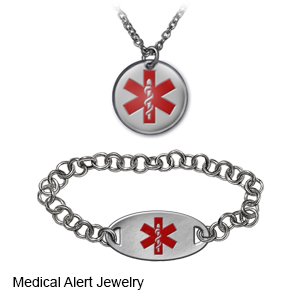Adrenal Insufficiency in Children
Medically reviewed by Drugs.com. Last updated on Aug 4, 2025.
Adrenal insufficiency is a condition that develops when your child's adrenal glands do not make enough adrenal hormones. Adrenal hormones such as cortisol help your child's body handle stress, keep blood pressure normal, and balance salt and fluids. They control how his body uses sugars, fats, and proteins. An adrenal crisis happens when your child's cortisol and aldosterone levels suddenly drop. This may lead to low blood pressure, dehydration, and low blood sugar. An adrenal crisis is life-threatening and needs immediate treatment in a hospital. An adrenal crisis can happen if your child suddenly stops taking his or her medicine. It can also happen when his or her body is under more stress than usual. This may happen during surgery, an illness, or trauma.
DISCHARGE INSTRUCTIONS:
Seek care immediately if:
- Your child has chills or a high fever.
- Your child has dry skin and lips, and is very thirsty.
- Your child faints.
- Your child refuses to eat or drink.
Call your child's doctor if:
- Your child feels dizzy when he or she stands up.
- Your child has a fever.
- Your child has nausea, vomiting, or stomach pain.
- Your child is sweating more than usual.
- Your child does not have any more medicine, or he or she stopped taking it.
- You have questions about your child's condition or care.
Medicines:
- Steroid medicine is given to balance the steroid hormone levels your child's adrenals naturally make. He or she may need to take this medicine for the rest of his or her life. You may need to change the amount he or she takes if he or she is ill or has increased stress. Ask your child's healthcare provider when and how much to increase his or her medicine. Do not stop giving this medicine to your child before you talk to his or her healthcare provider. Your child can trigger an adrenal crisis if he or she stops taking steroids suddenly.
- Give your child's medicine as directed. Contact your child's healthcare provider if you think the medicine is not working as expected. Tell the provider if your child is allergic to any medicine. Keep a current list of the medicines, vitamins, and herbs your child takes. Include the amounts, and when, how, and why they are taken. Bring the list or the medicines in their containers to follow-up visits. Carry your child's medicine list with you in case of an emergency.
Treatment options
The following list of medications are related to or used in the treatment of this condition.
Medical alert identification:
Have your child wear medical alert jewelry or carry a card that says he or she has adrenal insufficiency. You may get one from your local drugstore or ask your child's healthcare provider where to get one.
 |
Ways to help your child:
- Give your child snacks that contain sugar when he or she exercises or is active for long periods.
- Keep a blood glucose monitoring device and glucose gel at home. Ask for information on how to check your child's blood sugar levels with a blood glucose monitoring device.
Follow up with your child's healthcare as directed:
Visit your child's healthcare provider at least once a year or as directed. Your child's endocrinologist may have you check your child's blood sugar on a regular basis. He or she will tell you when and how often to do this. Your child's medicine may need to be adjusted over time. As your child grows, he or she may need more medicine to keep him or her healthy. He or she may also need blood tests to make sure he or she is getting the right amount of medicine. Write down your questions so you remember to ask them during your visits.
© Copyright Merative 2025 Information is for End User's use only and may not be sold, redistributed or otherwise used for commercial purposes.
The above information is an educational aid only. It is not intended as medical advice for individual conditions or treatments. Talk to your doctor, nurse or pharmacist before following any medical regimen to see if it is safe and effective for you.
Learn more about Adrenal Insufficiency
Treatment options
Care guides
Further information
Always consult your healthcare provider to ensure the information displayed on this page applies to your personal circumstances.
